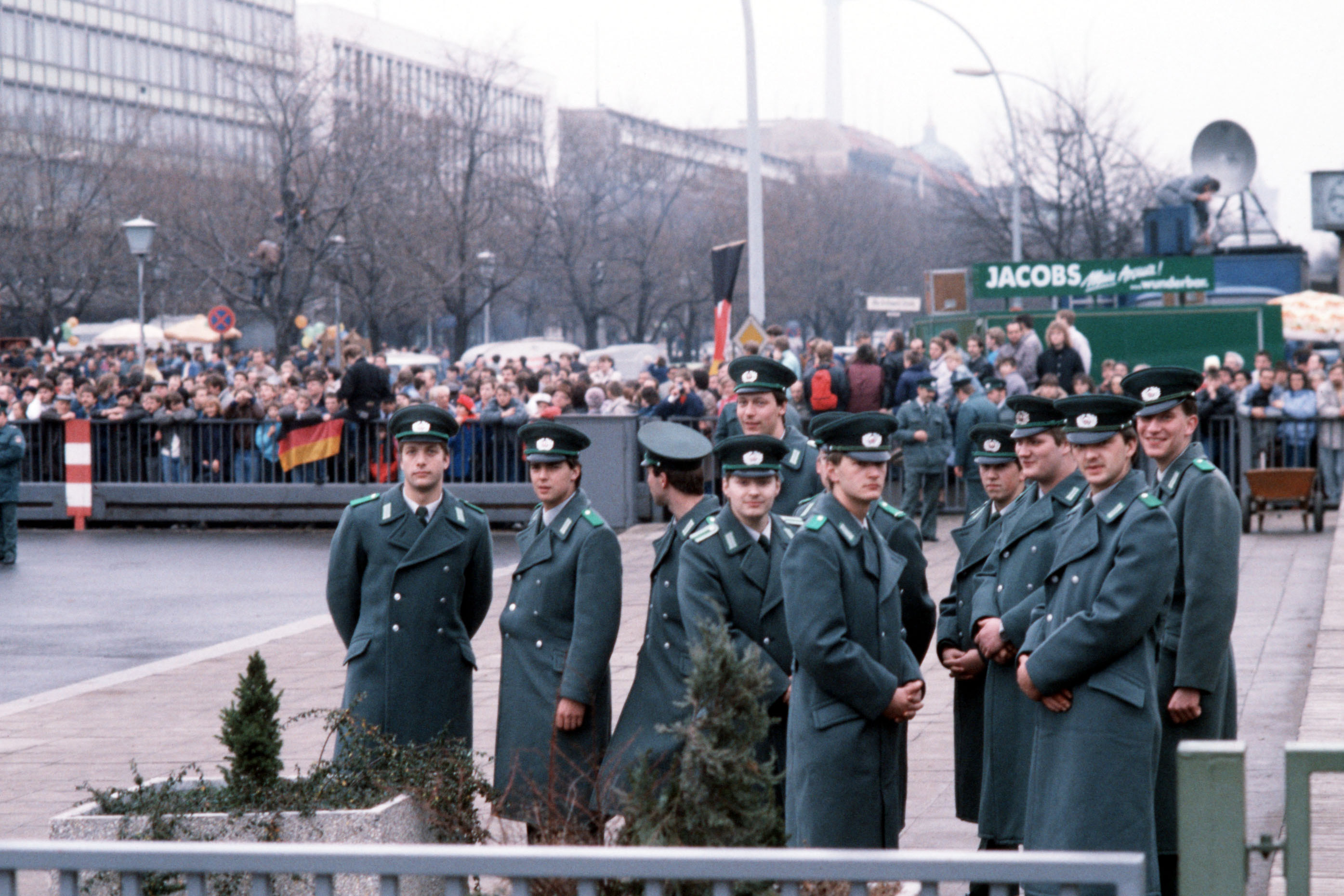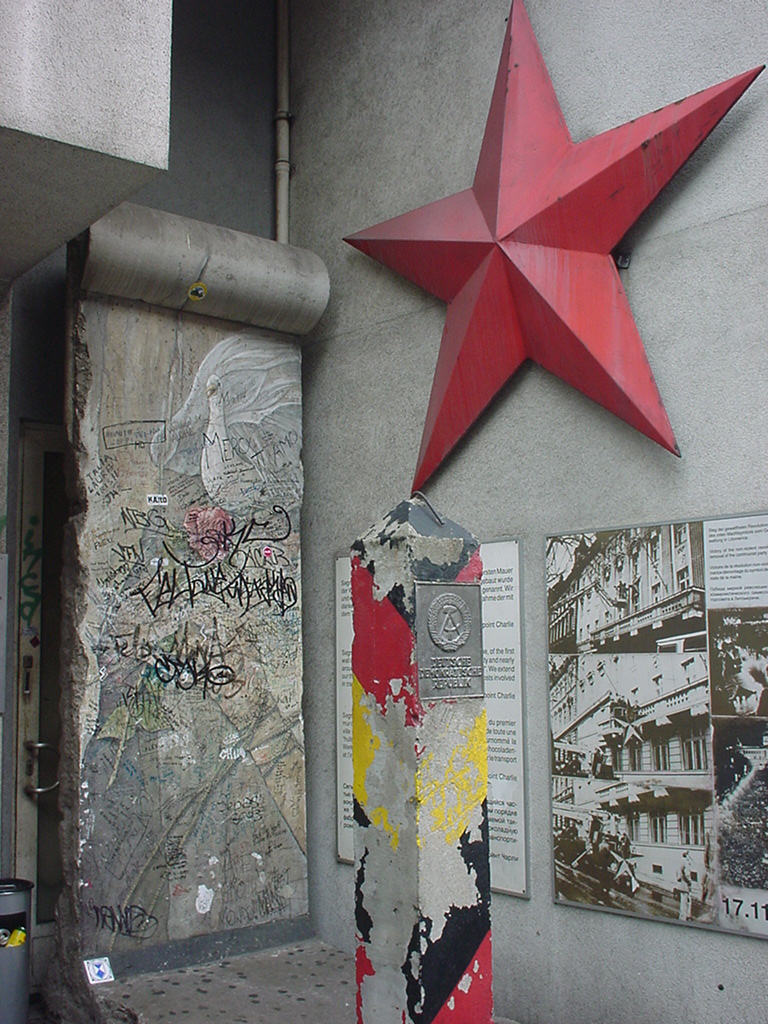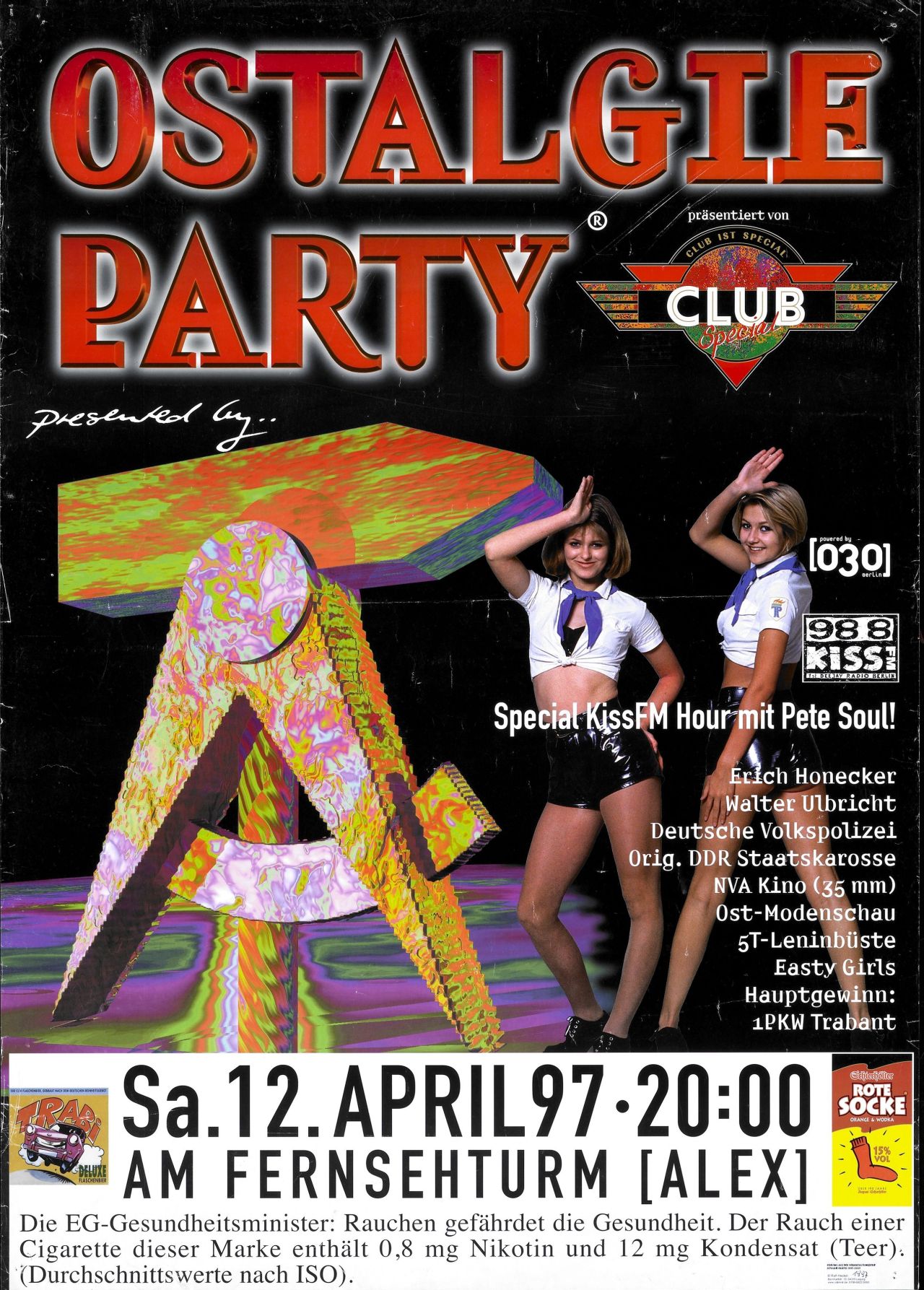Pining for a dictatorship – Germany 2014
The 2008 financial crash affected markets across the globe; Europe suffered as much as any and continues to do so with nations such as Greece and Spain crippled by high-unemployment, low investment and internal strife. However, one country seems to stand above the bickering and guide the continent through troubled waters; it’s hard not to see Germany as the wise old matriarch dealing with the petulant arguments that rage between London, Paris and a dozen other capitals across the European scene.
Yet in this apparent paradise where less than 5% of Germany’s 80 million is unemployed, all is not as rosy as it seems. The Bundesrepublik, since 1990 a textbook case of financial management and growth, is fracturing. Why? Because of a nation that vanished a quarter of a century ago.

The German Democratic Republic – henceforth referred to as the DDR – is most commonly remembered today as a brief and dirty period of post-war German politics. A Soviet puppet state boasting in the Stasi a secret police every bit as ruthless and if necessary violent as the USSR’s KGB, an economy that was hardly worthy of the name and a political elite ruling it over what by 1990 was a nation of 16 million subdued aspirational capitalists. Oh, not forgetting ‘that’ wall and the offence to motoring that was the Trabant.
So why did a recent poll suggest 67% of former ‘Ossies’ would prefer living in this oppressive communist dictatorship to life in the democratic, ‘civilised’ Germany of today? Why did 1 in 13 Germans say they’d prefer it if the Berlin Wall was still dividing the capital in two?
Since 1990, the BRD government has spent 1.6 trillion Euros getting the former eastern bloc portion of the nation up to the standard of the west, with new infrastructure projects ongoing. That money has come from wealthier West German pockets, feeding a growing sense of begrudgement as those same people see a corresponding slowing of investment in their own neighbourhoods. While that ill-blood festers, West Germans as a whole feel the reunification process has culturally and politically strengthened their country and improved the lot of the national character. 47% of ‘Wessies’ feel Germany in 2014 has overcome the differences that so marked the early years of the new land.
Compare that then with the 67% of ‘Ossies’ who still feel alienated from the government in Berlin and their ‘Wessie’ counterparts. There’s a growing sense among former DDR residents that they are second-class citizens in their own country, looked down upon by ‘Wessies’ whose extra years of living in democracy make them somehow enlightened as opposed to the poor souls brainwashed by the pro-Soviet DDR system. ‘Ossies’ just see this mentality as further proof they are not really valued by their western partners.
It’s another part of a Eastern mindset that saw its political system and way of life eradicated overnight when East-West talks concluded at the reunification negotiations:
“There was an ‘Anschluss mentality’ at the unification negotiations.” says Matthias Platzeck, Brandenburg state minister.
“There is a lot that went wrong in those talks. We tried to explain that when a society takes on a new form with a small group joining a larger group, it’s important to include some elements or symbols from the smaller group for the sake of harmony. That way the smaller group won’t feel like they’ve been overwhelmed and run over. But there was nothing of the smaller group (DDR) left in united Germany. …It was like ‘Look, children. We’ll take you in, we’ll pay for it all, but forget your demands’. That’s the attitude I was talking about.”
Platzeck is one of eastern Germany’s foremost politicians. He stands for the Social Democrats, a party that traces part of its ancestry into the former SED that governed the DDR. There is lingering affection then even for the socialist method of government in the eastern provinces of the Bundesrepublik.
He continues to bemoan the lot of an ‘Ossie’ in today’s Germany:
“Today, 20 years later, all the surveys in the east show that 50 percent of the people don’t feel like they’re part of united Germany – in their minds and their hearts. Everyone in the west is baffled by that. They ask: ‘Why don’t you feel like you’re part of one country after all the money we spent for you?’ My answer to them is always: ‘Just imagine you’re from a society that completely disappears and there’s nothing left.'”
The oft-derided standard of living in the DDR also proves a distant but warm memory for many ex-DDR citizens, despite efforts in western media to portray it as a grey era of austerity and hardship for all.
“Most East German citizens had a nice life,” one ‘Ossie’ says.
“I certainly don’t think that it’s better today… Life there (in the DDR) was happier and better than in reunified Germany.”
‘Ostalgie’ is a growing force in a Germany racked by the financial rigours of reconstruction and supporting ailing European partners. There are racial tensions too to add to the climate of unease as neo-Nazi organisations gain support in local elections.
Klaus Schroeder, political scientist at Berlin’s Free University, has spent much of the last decade gathering testimonials, memories and judgements of the DDR by its former dwellers. What he shares paints a remarkable picture.
“From today’s perspective, I believe that we were driven out of paradise when the Wall came down.” claims one.
Another goes further and ‘thanks God I lived in the DDR’, adding it wasn’t until he lived in the capitalist and democratic Germany of today that he witnessed beggars and homeless people.
Of course all this doesn’t excuse the barbaric way in which DDR border guards killed more than 1000 people trying to flee to the west between 1961 and 1990. Nor does it beg forgiveness for a regime which compiled the most comprehensive mass of pre-internet personal data in bureaucratic history. But as Schroeder asks, in the age of Facebook and telephone cold-calling, is our privacy any less violated in our democratic domains?
“I’m better off today, but I am not more satisfied.” he concludes.
Perhaps the beauty of the German Democratic Republic then, is in the social legacy. As families struggle to remain in house and home and workers face what have become ‘starvation wages’, ‘Ossies’ look wistfully to the days when a totalitarian and despotic government at least guaranteed them a roof over their head and a consistent pay packet.
For a country that preached international socialism, maybe there is a measure of lasting success.

